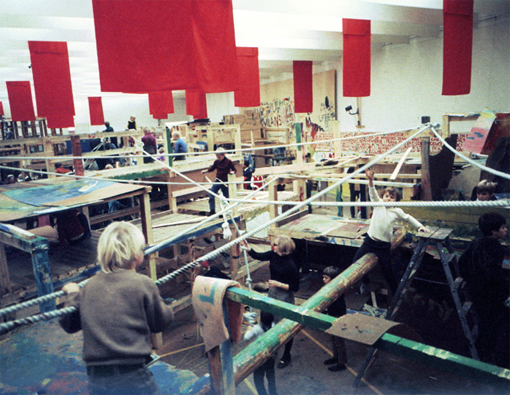"Money is the one thing that connects us and that we cannot truly have in common. In societies without qualities we can, in theory, have any number of things in common. However, after the decline of symbolic orders, it is an enormous effort to call them up and give them words and form. Remember, this is the desert of the real ...So never mind good intentions, they won’t get us anywhere: when art addresses the future in (self-)skeptical ways, it refuses nostalgia and hope as sentimental compensations for an uncertain future. [...]
Aesthetic problems can’t be solved in the social sphere, and vice versa, because the two are one, and the one becomes two. The social begins and ends in art, but not the other way around: art dies when it becomes a model. ...Are models necessary? Social models usually have a mimetic relation to a given reality, and they start with the whole, not the part. ...What would it mean to engage in historical processes and social struggles, but proceed without a specific model or image of the society to come?
Arguably, such an approach can only be articulated momentarily, as a flash, and maybe its sense of undoing and letting go relates first and foremost to aesthetic experience. In the early 1970s, Jean Baudrillard gave an alternative, downbeat definition of utopia: utopia, he wrote, is what is never spoken, never on the agenda, but 'always repressed in the identity of political, historical, logical, dialectical orders.' Utopia is what the order of the day is missing ...Something elusive that dies when aggressive interpretation sets in. When utopia is deprived of its telos, it becomes compatible with aesthetic thinking, with the ambivalence and skepticism through which art returns real events and bodies to virtual non-places. Like utopia, art is insoluble and uninhabitable, its speech threatened by reality principles."
From Lars Bang Larsen's "The Society Without Qualities", in the latest edition of the E-flux journal.
Also of interest in the same issue, Amanda Boetzkes and Andrew Pendakis's essay "Visions of Eternity: Plastic and the Ontology of Oil." In some respects it represents an attempt at de-reifying the material economy of petroleum, which is a notion that's intrigued me for some time.

No comments:
Post a Comment